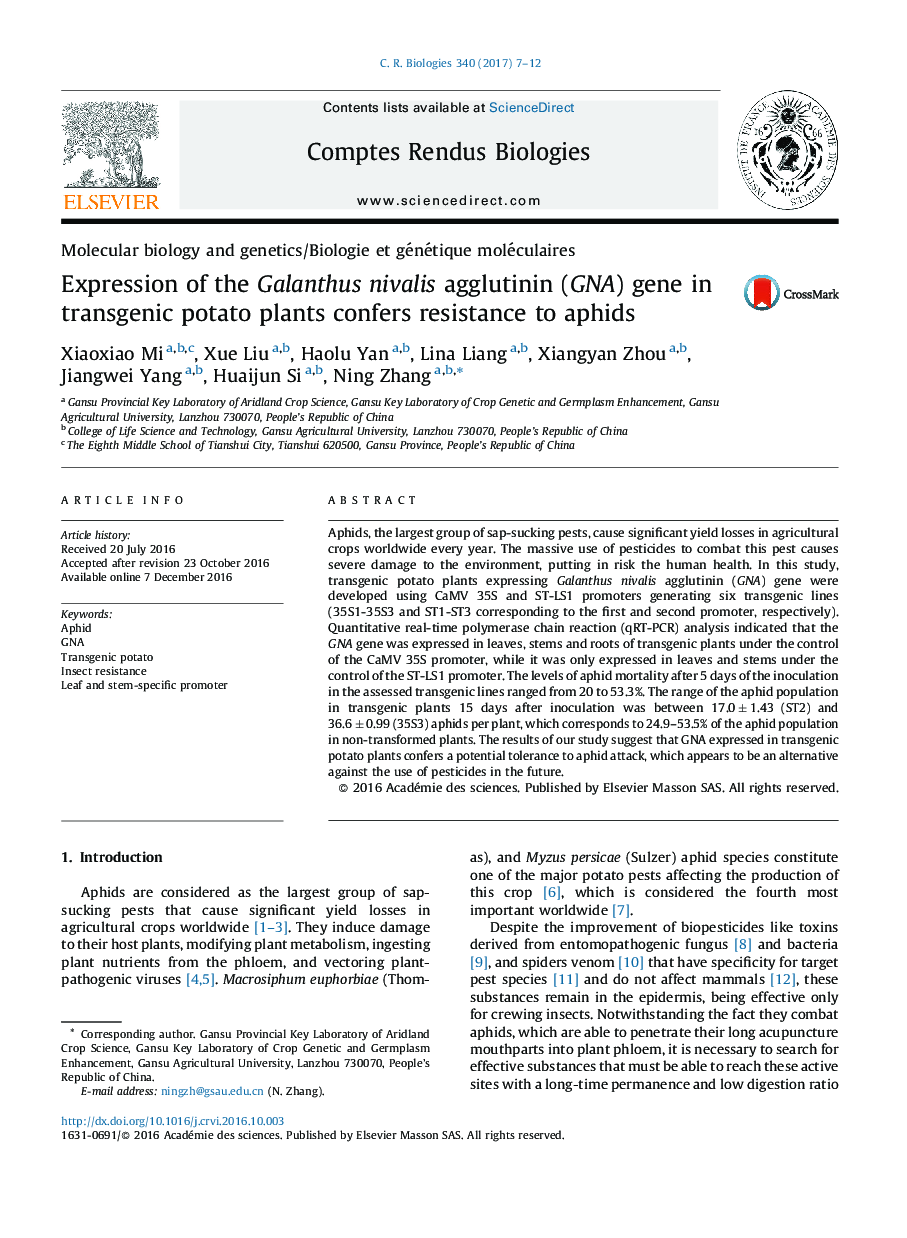| Article ID | Journal | Published Year | Pages | File Type |
|---|---|---|---|---|
| 5585578 | Comptes Rendus Biologies | 2017 | 6 Pages |
Aphids, the largest group of sap-sucking pests, cause significant yield losses in agricultural crops worldwide every year. The massive use of pesticides to combat this pest causes severe damage to the environment, putting in risk the human health. In this study, transgenic potato plants expressing Galanthus nivalis agglutinin (GNA) gene were developed using CaMV 35S and ST-LS1 promoters generating six transgenic lines (35S1-35S3 and ST1-ST3 corresponding to the first and second promoter, respectively). Quantitative real-time polymerase chain reaction (qRT-PCR) analysis indicated that the GNA gene was expressed in leaves, stems and roots of transgenic plants under the control of the CaMV 35S promoter, while it was only expressed in leaves and stems under the control of the ST-LS1 promoter. The levels of aphid mortality after 5 days of the inoculation in the assessed transgenic lines ranged from 20 to 53.3%. The range of the aphid population in transgenic plants 15 days after inoculation was between 17.0 ± 1.43 (ST2) and 36.6 ± 0.99 (35S3) aphids per plant, which corresponds to 24.9-53.5% of the aphid population in non-transformed plants. The results of our study suggest that GNA expressed in transgenic potato plants confers a potential tolerance to aphid attack, which appears to be an alternative against the use of pesticides in the future.
